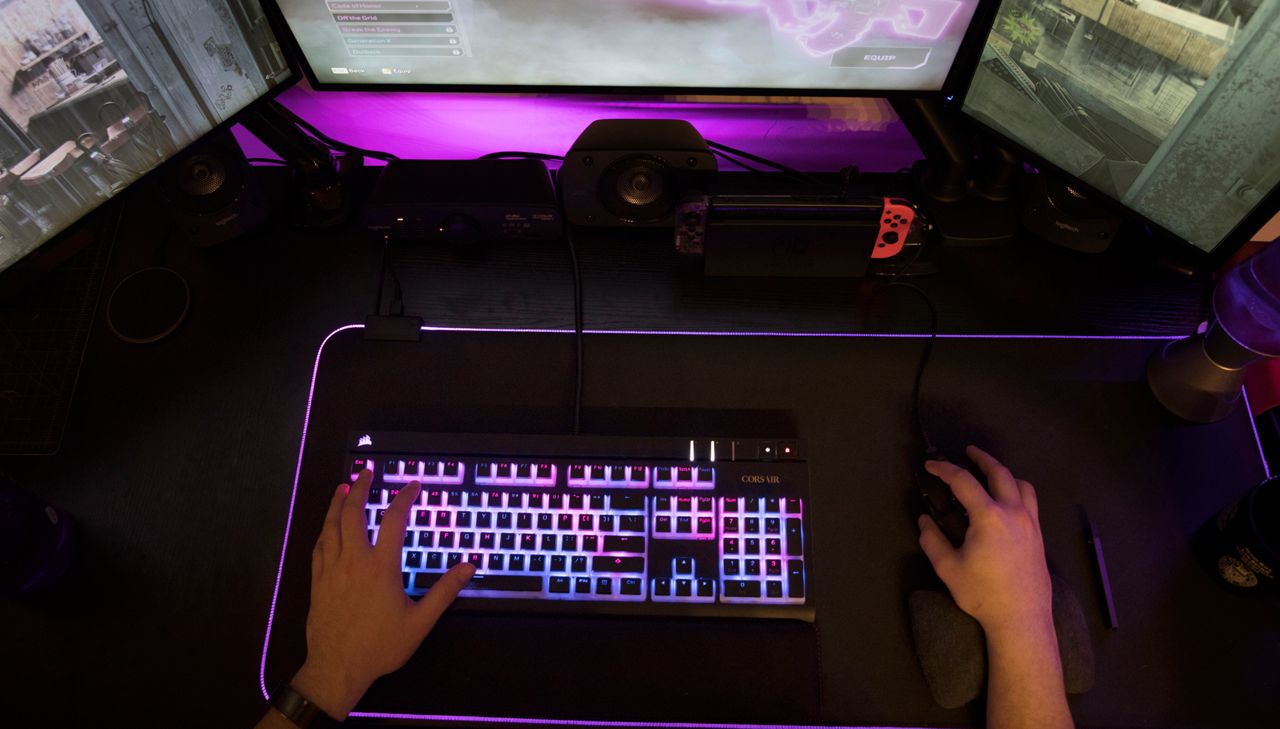Editor’s note: Third of a three-part series on the effects of the playing video games at a high volume, and how one Wisconsin man overcame his addiction and is now thriving.
APPLETON, Wis. — Adam Holman knows all about the price you pay. He has first-hand knowledge.
Video game addiction nearly cost him the career he has now as a business owner and telehealth therapist at Main Quest Psychotherapy in Tempe, AZ.
But that wasn’t the entire bill.
What You Need To Know
- American Psychiatric Association’ refers to video game addiction as Internet Gaming Disorder (IGD). As of now, IGD is in the section recommending further research, as is caffeine use disorder
- In 2019, the World Health Organization included “gaming disorder” as a behavioral addiction. In the DSM, they consider only gambling a behavioral addiction
- 0.3% to 1% of the general population fit the criteria for a video game addiction diagnosis in the US, UK, Canada, and Germany
“Probably most obvious is the more time you spend playing games, the less time that you spend attending to the different areas of your life,” said Holman, a native of West Bend. “So, you end up prioritizing games over pretty much everything else at some point. That includes taking care of yourself. It includes your relationships or your friendships. And then, of course, it includes your responsibilities. In my case, with schoolwork and work.”
As he found with himself and patients he’s worked with, fantasy becomes more important than reality.
“When I’ve worked with other people who are in this position,” he said. “one of the things they’ll tell me is: ‘I know I’m not achieving anything by playing games. But it feels like what I would be losing if I didn’t play is worse than what I lose in real life.’
“And then it does have effects on the brain. In the long term, specifically in the dopamine and reward sections of your brain. So, video games release a lot of dopamine with very little effort. And they’re extremely engaging. Which, when you compare video games to real life, real life ends up feeling extremely boring compared to video games.”
Holman said that was his experience.
“When I stopped playing video games as much as I was, it was actually shocking to me how painfully boring real life felt to me compared to games,” he said.
“And it wasn’t until later, when I looked at and understood the research, that that experience was partially neurological. Nothing in real life necessarily releases that much dopamine for the amount of effort that you put in. So going to the grocery store, for instance, was painfully boring to me. Felt like a punishment.
And it seems so silly now. But little things like that felt so bad. Because I was just so used to exciting and engaging video games comparatively.”
Eventually, Holman said, you become detached from what’s going on around you.
“In the long term, if you look at someone’s brain while they’re playing video games, and if you look at the brain of someone who’s played a lot of video games for a long period, there is a numbness and a reduced activation of the emotional processing center of your brain,” he said. “So, it does create this kind of emotional numbness. That is part of the reason I had a hard time acknowledging what I was feeling for a while. And it does a really good job of stopping people from feeling things, in a similar way to other addictions.”
Then there are the physical consequences; repetitive stress injuries, postural issues, obesity, and cardiovascular health issues.
Dr. Michael Bishop, a psychologist who started Summerland Camps, the first residential treatment program designed to treat video game and screen addiction in children and adolescents, takes a cognitive behavioral approach for his campers.
“You can’t have an abstinence approach for cellphones and computers,” he said. “It’s such an intertwined part of our society. And let’s be real here, these kids that are gravitating toward computers, they’re probably going to have jobs in the computer field. It’s probably what they’re good at.
“The answer is to learn how to live with it, and to learn how to set up some structure in their life. And so, what we try to do in our program is we try to balance structure and choice and help them develop some very concrete tools of how you structure your life. Kind of walk them through that path of success and help them understand that you can embrace structure. And it actually feels pretty good.”
Bishop has each camper set up a Behavior Planning Journal, where they list what is important to them and implement a plan to make those things at part of their daily life.
“Essentially, we’re helping them learn how to track their daily activity,” he said. “And there’s a concurrent process I do with the parents. The parents attend an online meeting with me four times over the summer, where I help them transfer those skills back home. And they learn how to support the Behavior Planning Journal at home.”
Because the need for help is greater than the resources available, Holman has developed a parenting course.
“It’s for learning to set boundaries around technology in a way that they’ll actually be listened to,” he said. “It was a mix of a bunch of parents reaching out to me asking for help. And me realizing that so much of what I end up doing when I work with parents is just explaining to them some of the same things over and over again.
“And then, it’s partially created out of just thinking about and understanding what so many of my clients have needed and what I would have needed in order to prevent being in this place.”
Story idea? You can reach Mike Woods at 920-246-6321 or at: michael.t.woods1@charter.com



